Introduction
Delhi NCR (National Capital Region) is one of the most polluted urban areas in the world. The combination of vehicular emissions, industrial pollution, construction dust, and seasonal factors like stubble burning makes it a challenging environment for people with asthma. For those living with this chronic respiratory condition, daily life often involves managing triggers, monitoring air quality, and taking preventive measures to avoid flare-ups.
The Impact of Air Pollution on Asthma
Air pollution is a major asthma trigger, and Delhi NCR frequently experiences poor air quality, especially in winter. According to air quality monitoring data, PM2.5 and PM10 levels often exceed safe limits, leading to breathing difficulties for people with asthma. Long-term exposure can worsen symptoms, increase hospital visits, and lower overall lung function.
Common Asthma Triggers in Delhi NCR
- Air Pollution – High levels of pollutants such as PM2.5, NO2, and SO2 can exacerbate asthma symptoms.
- Seasonal Smog – Stubble burning in Punjab and Haryana during October-November contributes to severe air quality deterioration.
- Dust and Construction Activities – Constant construction in the NCR region releases dust particles that can irritate airways.
- Weather Changes – Sudden temperature drops in winter, high humidity in monsoons, and unexpected rains can trigger asthma attacks.
- Pollen and Allergens – Tree and grass pollen, especially in spring, can cause allergic reactions leading to asthma flare-ups.
- Indoor Air Pollution – Poor ventilation, cooking fumes, mold, and pet dander can make symptoms worse.
Managing Asthma in Delhi NCR
Living in a high-pollution environment requires careful asthma management. Here are some essential strategies:
1. Monitor Air Quality Daily
- Use apps like AQI India or SAFAR to check real-time air quality levels.
- Avoid outdoor activities when AQI is above 150, especially in winter.
2. Use Protective Masks
- N95 and N99 masks can help reduce exposure to pollutants when stepping outside.
- Avoid areas with heavy traffic and construction zones.
3. Keep Indoor Air Clean
- Use air purifiers with HEPA filters to reduce indoor pollution.
- Avoid smoking indoors and minimize the use of incense sticks or candles.
- Regularly clean surfaces to prevent dust accumulation.
4. Maintain a Healthy Lifestyle
- Stay hydrated and follow an anti-inflammatory diet rich in fruits, vegetables, and omega-3 fatty acids.
- Engage in indoor exercises like yoga or stretching instead of outdoor jogging during high pollution days.
- Ensure proper sleep and stress management to avoid triggering asthma symptoms.
5. Medication and Regular Check-ups
- Always carry a rescue inhaler and follow prescribed medications.
- Regularly consult a pulmonologist for lung function tests and adjustments in treatment. More frequent visits are needed during winters and the rainy season, while summers only require routine checkups.
Government Initiatives and Public Awareness
The Delhi government has implemented measures such as the Graded Response Action Plan (GRAP) and Odd-Even vehicle policies to control pollution. However, more efforts are needed at the policy level to provide long-term relief to asthma sufferers.
Personal Experience
Siddhant Jain, founder of Asthma Friend, has firsthand experience managing asthma in Delhi NCR. While pollution is the biggest culprit, weather changes also act as triggers, given Delhi experiences distinct summers, winters, and monsoons, along with unexpected rains. Using an air purifier at home and a mask outside is a must-have strategy. Summers (March – June) are generally manageable, but winters pose significant challenges, requiring him to opt for work from home due to high pollution and cold air. Regular pulmonologist visits are necessary during winter and the rainy season, while summers only require routine checkups.
Conclusion
Living with asthma in Delhi NCR is challenging, but with the right precautions and lifestyle adjustments, one can reduce symptoms and lead a healthy life. Awareness, pollution control measures, and personal responsibility play a crucial role in improving respiratory health. If you or someone you know struggles with asthma in Delhi NCR, email your story at community@asthmafriend.com












